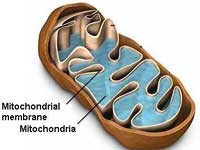Just In
- 3 hrs ago

- 10 hrs ago

- 11 hrs ago

- 14 hrs ago

Don't Miss
- Sports
 Today's IPL 2024 Match Highlights, LSG vs CSK: Five Key Points as KL Rahul powers Lucknow to Crucial Victory
Today's IPL 2024 Match Highlights, LSG vs CSK: Five Key Points as KL Rahul powers Lucknow to Crucial Victory - News
 TDP Candidate Dr G Laxmi Pauses Lok Sabha Election Campaign To Perform Caesarean
TDP Candidate Dr G Laxmi Pauses Lok Sabha Election Campaign To Perform Caesarean - Education
 Exam Pressure Does Not Exist; Studying Punctually is Crucial; Says Aditi, the PSEB 2024 Topper
Exam Pressure Does Not Exist; Studying Punctually is Crucial; Says Aditi, the PSEB 2024 Topper - Movies
 When Karan Johar Revealed Sara Ali Khan And Janhvi Kapoor Once Dated Siblings On KWK 7, Guess Who?
When Karan Johar Revealed Sara Ali Khan And Janhvi Kapoor Once Dated Siblings On KWK 7, Guess Who? - Finance
 Reliance, ONGC, Tata, Adanis: Energy Stocks Didn't Get The Memo Of Bears, Up 12% In 30-Days; 10 Stocks To BUY
Reliance, ONGC, Tata, Adanis: Energy Stocks Didn't Get The Memo Of Bears, Up 12% In 30-Days; 10 Stocks To BUY - Automobiles
 Suzuki Swift Hatchback Scores 4 Star Safety Rating At JNCAP – ADAS, New Engine & More
Suzuki Swift Hatchback Scores 4 Star Safety Rating At JNCAP – ADAS, New Engine & More - Technology
 Dell Introduces AI-Powered Laptops and Mobile Workstations for Enterprises in India
Dell Introduces AI-Powered Laptops and Mobile Workstations for Enterprises in India - Travel
 Journey From Delhi To Ooty: Top Transport Options And Attractions
Journey From Delhi To Ooty: Top Transport Options And Attractions
A New Discovery In Genetic Mutation

According to the researchers, the gene, called hSDH5, is required for activation of an enzyme complex that plays a critical role in the chemical reactions that take place within cells to convert biochemical energy into usable energy. Dr. Jared Rutter, the lead author of the study explains, "Defects in mitochondria, the power sources of the cell, have been implicated in a variety of human disorders, including cancer."
The study, however, involved the use of yeast Saccharomyces cerevisiae, in order to study mitochondrial functions, before going back to humans and determining whether the same had relevance with humans too. Then came the results: They first characterized a mitochondrial protein called Sdh5 in yeast and then moved on to study its potential role in human disease.
This was not the end. Rutter and his colleagues discovered that, in yeast, the Sdh5 protein is needed for the S.D.H. complex to function normally. "The amino acid sequence of yeast Sdh5," said the man "Is 44 percent identical to its human counterpart, which we've named hSDH5." He adds:"Previous genetic studies have shown that the hereditary s PGL1, PGL3, and PGL4 are associated with mutations causing loss of S.D.H. Activity." He concludes: "Although the gene for PGL2 had not been identified, we knew that it was located on the same chromosome as the hSDH5 gene."
Rutter and his colleagues sequenced the hSDH5 gene in three individuals with PGL2. Of the 45 individuals within the affected lineage who inherited the mutation, 33 have developed PGL2, providing strong evidence that hSDH5 is the PGL2 gene.
AGENCIES
-
 menIrrfan Khan Passes Away: Interesting Facts About India's Most Versatile Actor
menIrrfan Khan Passes Away: Interesting Facts About India's Most Versatile Actor -
 disorders cureNeuroendocrine Tumours (NETs): Types, Symptoms, Causes And Treatment
disorders cureNeuroendocrine Tumours (NETs): Types, Symptoms, Causes And Treatment -
 wellnessIrrfan Khan Diagnosed With Neuroendocrine Tumour: Everything You Need To Know
wellnessIrrfan Khan Diagnosed With Neuroendocrine Tumour: Everything You Need To Know -
 wellnessFocus On Preventive Steps To Ease Burden Of Genetic Diseases: VP
wellnessFocus On Preventive Steps To Ease Burden Of Genetic Diseases: VP -
 wellnessCovid-19 Severity Among Elderly May Be Due To Genetic Reasons, Study Reveals
wellnessCovid-19 Severity Among Elderly May Be Due To Genetic Reasons, Study Reveals -
 wellnessGenetic Link Between Routine Blood Test Results And Mental Health Disorders: Study
wellnessGenetic Link Between Routine Blood Test Results And Mental Health Disorders: Study -
 kidsFirst Gene Therapy For Tay-Sachs Disease Successfully Given To Two Children
kidsFirst Gene Therapy For Tay-Sachs Disease Successfully Given To Two Children -
 healthScientists Develop New AI Model To Discover Genetic Risk Factors For Motor Neurone Disease
healthScientists Develop New AI Model To Discover Genetic Risk Factors For Motor Neurone Disease -
 diabetesKnow About Genetics Of Type 1 And Type 2 Diabetes And How To Prevent If It Runs In The Family
diabetesKnow About Genetics Of Type 1 And Type 2 Diabetes And How To Prevent If It Runs In The Family -
 disorders cureAchondroplasia: Causes, Symptoms, Diagnosis And Treatment
disorders cureAchondroplasia: Causes, Symptoms, Diagnosis And Treatment -
 disorders cureHuntington’s Disease: Causes, Symptoms, Diagnosis And Treatment
disorders cureHuntington’s Disease: Causes, Symptoms, Diagnosis And Treatment -
 disorders cureGene Editing: Everything You Need To Know
disorders cureGene Editing: Everything You Need To Know


 Click it and Unblock the Notifications
Click it and Unblock the Notifications



